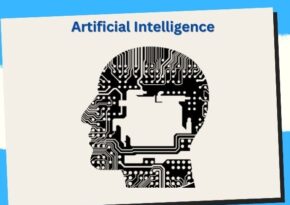
🧠 AI-Powered Healing: Transforming Mental Health Support 🌟
🧠 Explore the transformation of mental health support through AI-powered solutions. Discover how AI is making a profound impact on emotional well-being and mental health treatment.
🧠 AI in Mental Health Support and Therapy: Bridging the Gap to Well-Being 🤖❤️
Mental health is an integral part of our overall well-being, yet millions of individuals worldwide struggle to access the support and therapy they need. Integrating Artificial Intelligence (AI) into mental health services has opened new doors to accessibility, affordability, and effectiveness in supporting mental health and well-being. This article delves into the fascinating world of AI in mental health support and therapy, exploring its significance, principles, applications, challenges, and the promising future it holds.
Understanding AI in Mental Health Support and Therapy
🤖 What Is AI in Mental Health Support and Therapy?
AI in mental health support and therapy refers to the use of artificial intelligence technologies to assist individuals in managing their mental health, providing therapeutic interventions, and improving the overall quality of mental health services. It encompasses a wide range of applications, from chatbots offering emotional support to AI-driven therapy sessions.
💡 The Essence of AI in Mental Health Support
The essence of AI in mental health support can be distilled into several key principles:
- Accessibility: AI ensures that mental health support is accessible to individuals regardless of geographical location, financial status, or time constraints.
- Personalization: AI tailors interventions to individual needs and preferences, recognizing that mental health experiences are unique.
- Privacy and Confidentiality: AI respects user privacy and maintains confidentiality in mental health interactions.
- Early Intervention: AI can detect early signs of mental health challenges and provide timely support.
- Evidence-Based Practices: AI draws from evidence-based therapeutic techniques and interventions.
Applications of AI in Mental Health Support and Therapy
🌐 Enhancing Well-Being
AI in mental health support and therapy has diverse applications that enhance well-being and provide crucial support:
- Mental Health Chatbots: AI-powered chatbots offer emotional support, coping strategies, and self-help exercises.
- Teletherapy: AI assists mental health professionals in conducting remote therapy sessions, improving access to care.
- Digital Therapeutic Apps: AI-driven apps offer cognitive-behavioral therapy (CBT) exercises, mood tracking, and personalized interventions.
- Sentiment Analysis: AI analyzes text and speech to detect changes in emotional states, providing early intervention.
- Mental Health Screening: AI conducts mental health assessments and recommends further care.
- Support Groups and Communities: AI connects individuals with similar mental health challenges, fostering peer support.
Challenges in Implementing AI in Mental Health Support
🧩 The Complex Landscape
Implementing AI in mental health support presents several challenges:
- Ethical Dilemmas: Balancing the potential of AI with ethical considerations, such as privacy, consent, and bias, requires careful thought.
- Data Privacy: Handling sensitive user data in AI-driven mental health support must adhere to strict privacy regulations and ethical standards.
- Quality Assurance: Ensuring that AI-driven interventions meet clinical standards and adhere to best practices is challenging.
- Human-AI Collaboration: Fostering collaboration between AI and mental health professionals requires training and coordination.
- User Trust: Building user trust in AI-driven mental health services is essential for successful adoption.
Ethical Considerations in AI-Enhanced Mental Health Support
🤝 Balancing Ethics and Innovation
AI-enhanced mental health support raises several ethical considerations:
- Privacy: Protecting user data and respecting privacy rights is paramount in mental health settings.
- Informed Consent: Users should have control and informed consent over using AI technologies in their mental health support.
- Bias Mitigation: Addressing algorithmic biases to prevent discriminatory mental health outcomes is an ethical imperative.
- Quality and Accountability: Ensuring that AI-driven mental health interventions meet clinical standards and are accountable for their recommendations.
- Human Supervision: AI should complement, not replace, human mental health professionals, ensuring that human judgment remains central.
The Future of AI in Mental Health Support
🚀 Beyond the Horizon
The future of AI in mental health support holds numerous exciting possibilities:
- AI-Powered Therapy: AI-driven therapy sessions will become more personalized and accessible to a broader audience.
- Remote Mental Health Services: AI will expand access to mental health support for individuals in remote and underserved areas.
- Preventive Mental Health: AI will play a significant role in early detection and preventive mental health care.
- Global Mental Health: AI-driven interventions will address global mental health disparities and challenges.
- Enhanced User Experience: AI will provide a more seamless and user-friendly mental health support experience.
Conclusion
AI in mental health support and therapy represents a transformative force that is breaking down barriers, enhancing accessibility, and empowering individuals to prioritize their mental well-being. By embracing the principles of accessibility, personalization, privacy, and ethical considerations, we can harness the full potential of AI to create a more inclusive and compassionate mental health support system. As we navigate the evolving landscape of AI in mental health, the principles of ethical AI integration will serve as our guiding compass, ensuring that technology becomes a force for empowerment, resilience, and improved mental well-being for all individuals, regardless of their mental health journey. The future is bright with possibilities as AI bridges the gap to well-being. 🧠🤖❤️
Related Queries
🤖 Embracing Empathy: How AI Revolutionizes Therapy 💪
🌈 Mental Wellness Redefined: AI’s Role in Therapy and Support 🚀
🌐 Breaking Stigmas: AI’s Impact on Mental Health Treatment 🤝
💡 Your Mental Health Ally: AI-Enhanced Support and Therapy 📈
👩⚕️ Virtual Therapists: How AI Is Changing the Face of Mental Health Care 🩺
🌟 AI for Mental Resilience: The Future of Emotional Well-Being 🌠
🔑 Unlocking Healing: The Power of AI in Mental Health Support 🚁
📚 The Mind Matters: How AI Is Advancing Mental Health Therapies 🏥
🌅 Brighter Horizons: AI’s Contribution to Mental Health Treatment 🏆
Save/Share this story with QR CODE
Disclaimer
This article is for informational purposes only and does not constitute endorsement of any specific technologies or methodologies and financial advice or endorsement of any specific products or services.
📩 Need to get in touch?
Feel free to Email Us for comments, suggestions, reviews, or anything else.
We appreciate your reading. 😊Simple Ways To Say Thanks & Support Us:
1.) ❤️GIVE A TIP. Send a small donation thru Paypal😊❤️
Your DONATION will be used to fund and maintain NEXTGENDAY.com
Subscribers in the Philippines can make donations to mobile number 0917 906 3081, thru GCash.
3.) 🛒 BUY or SIGN UP to our AFFILIATE PARTNERS.
4.) 👍 Give this news article a THUMBS UP, and Leave a Comment (at Least Five Words).
AFFILIATE PARTNERS

World Class Nutritional Supplements - Buy Highest Quality Products, Purest Most Healthy Ingredients, Direct to your Door! Up to 90% OFF.
Join LiveGood Today - A company created to satisfy the world's most demanding leaders and entrepreneurs, with the best compensation plan today.



 Business Technology, Finance Technology & Information Technology
Business Technology, Finance Technology & Information Technology




